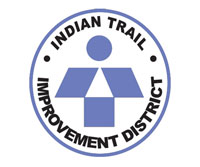The Indian Trail Improvement District’s auditor gave the district an unmodified opinion on its financial statements Wednesday, meaning there were no egregious disparities found in its 2012-13 financial year.
But the auditor did find a breakdown in internal control primarily due to staff turnover that year.
Deborah Diaz with Rampell & Rampell said the audit was clean, but not without more effort than usual due to changes in staff and not without several recommendations for improvement in procedures.
Former ITID Administrator Tanya Quickel had a stormy relationship with the newly configured ITID Board of Supervisors after the November 2012 election. She eventually resigned in June 2013 after an eight-month period that saw a number of key staff members leave.
Quickel was replaced by Jim Shallman, who had worked previously in the district’s accounting department. Shallman first took the job on a temporary basis before being given the position permanently.
“We had multiple adjustments to journal entries that were made during the year,” Diaz said. “We did additional work based on the circumstances that existed due to the turnover in staff. As you can tell, we’re here in August. It took us a little longer to get the job done based on the amount of work and the difficulties not necessarily with management, [but] in terms of the turnover, identifying where you were. It was a difficult year in that respect, in terms of lining everything up.”
The total revenue for ITID for 2013 was $11,243,875, compared with $9,730,129 in 2012. Total expenses in 2013 were $11,279,815, compared with $11,394,468 in 2012.
Diaz said the total assigned fund balance at the end of fiscal year 2013 was about $10.1 million. “Your financial condition is very good,” she said.
Diaz said one factor that generated the increase was the receipt of about $1.7 million from the Federal Emergency Management Agency, explaining that during 2013 the funds were appropriated and ITID received the total in January 2014.
“As I said previously, it was what we would consider a difficult year,” she said.
The audit found internal control lacking over financial reporting in compliance with grants and outstanding bonds, and other areas. Her firm issued a report identifying significant deficiencies in internal control and noncompliance as it relates to the rules of the auditor general and outstanding bond issues, as well as noncompliance with some state statutes.
“Those of you who have been on the board for a while will find similarities in these comments to what we had four or five years ago, and we see that essentially it’s directly related to the turnover,” Diaz said. “There was a lack of control based on not having enough people in supervisory positions throughout the year.”
Diaz said she has discussed the issues at length with Shallman and the new financial director with a view toward things that they should be thinking about in strengthening those controls.
“Your policies and procedures are going to have to be reviewed in total because you want to make sure that whatever was in place prior to July 2013, that if it’s not applicable now based on staff changes and responsibilities, then you need to step back and take a look at your policies and procedures and tailor those to your current operation, making sure that documents are being reviewed, adjusting journal entries and that there is a separation of duties. We’ve lost a little bit of that over this process,” Diaz said.
However, some loss in internal control is inevitable with the turnover in personnel, she noted.
“I think we knew clearly that that was going to happen,” Diaz said. “In fact, my initial reaction when you lost the first position was that someone on the board needed to sign all the checks because you no longer had controls, and we saw that clearly, that there was a board member’s signature on every disbursement that was issued from the district. Looking at that level of management control, it gives us a little bit more comfort if somebody at the supervisor’s level has actually reviewed it and signed off on it.”
Diaz recommended that with the turnover of staff, they step back and pay particular attention to policies and procedures, and that the board, since it is responsible for policies and procedures, have that discussion with management.
“I can’t stress that enough,” she said. “I think it’s very important, and I know that you want to get back to where you were, with policies and procedures in place that provide effective internal control over the financial activities of the district.”








